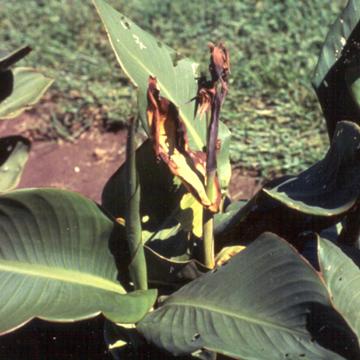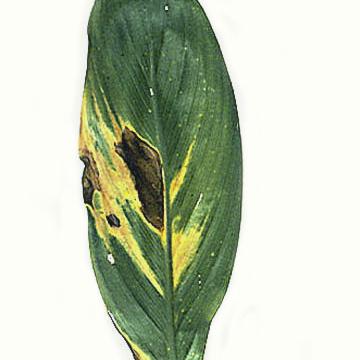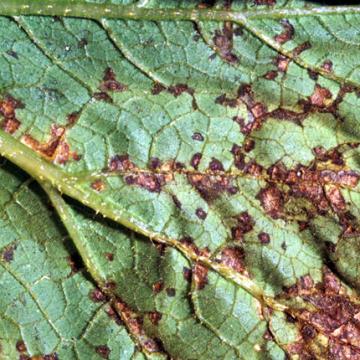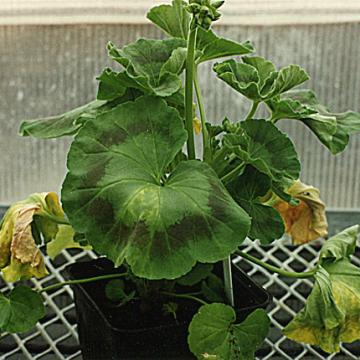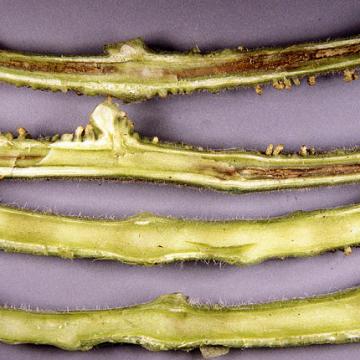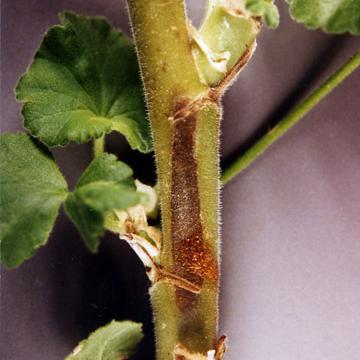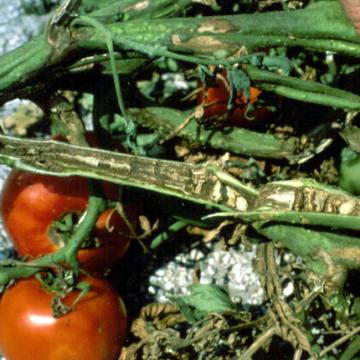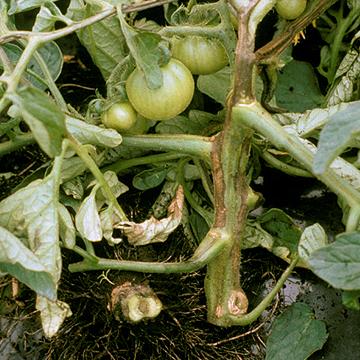DISEASE: Bacterial blight (Black leaf blight)
HOST: Canna
Canna with blighted shoots and leaves.
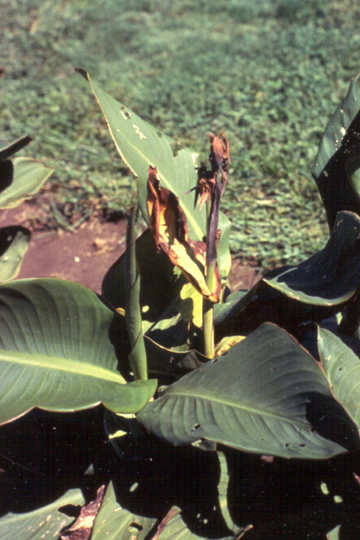
Bacterial blight (Black leaf blight) | Canna
DISEASE: Bacterial blight (Black leaf blight)
HOST: Canna (Canna indica)
PATHOGEN: Xanthomonas campestris pv. cannae
SOURCE: D. Shoenweiss, M. Shurtleff
DISEASE: Bacterial blight (Black leaf blight)
HOST: Canna
Canna with yellowing and blackened tissues.
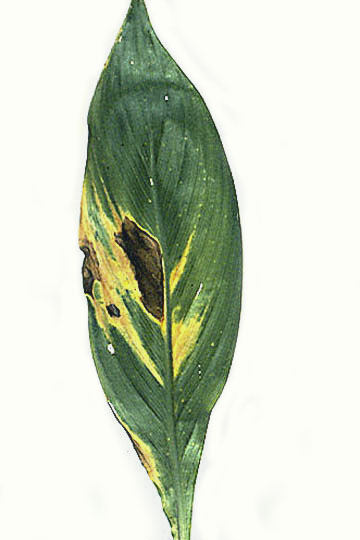
Bacterial blight (Black leaf blight) | Canna
DISEASE: Bacterial blight (Black leaf blight)
HOST: Canna (Canna sp.)
PATHOGEN: Xanthomonas campestris pv. cannae
SOURCE: A. Alvarez
DISEASE: Bacterial leaf spot
HOST: Pumpkin
Leaf with tan to brown, angular lesions with dark margins. They are similar to those caused by angular leaf spot.
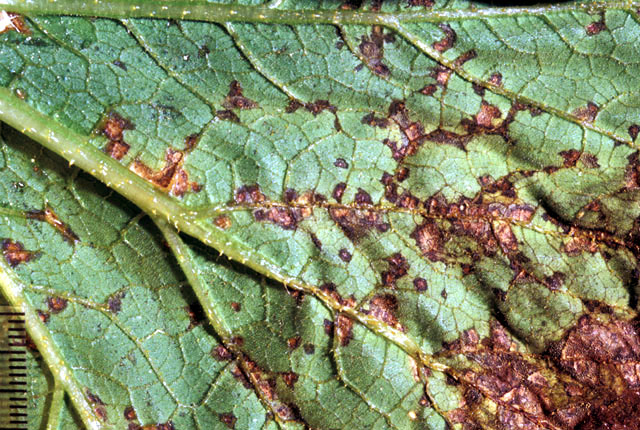
Bacterial leaf spot | Pumpkin
DISEASE: Bacterial leaf spot
HOST: Pumpkin (Cucurbita pepo)
PATHOGEN: Xanthomonas cucurbitae
SOURCE: J. Young
DISEASE: Pith necrosis
HOST: Geranium
Geranium with wilted, yellow necrotic leaves.
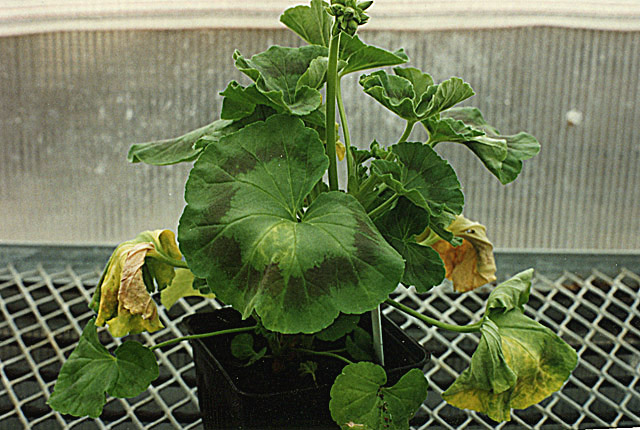
Pith necrosis | Geranium
DISEASE: Pith necrosis
HOST: Geranium (Pelargonium sp.)
PATHOGEN: Pseudomonas corrugata
SOURCE: A. Magyarosy, D. Thomas
DISEASE: Pith necrosis
HOST: Geranium
Pitted and hollow stems, one of the disease symptoms.
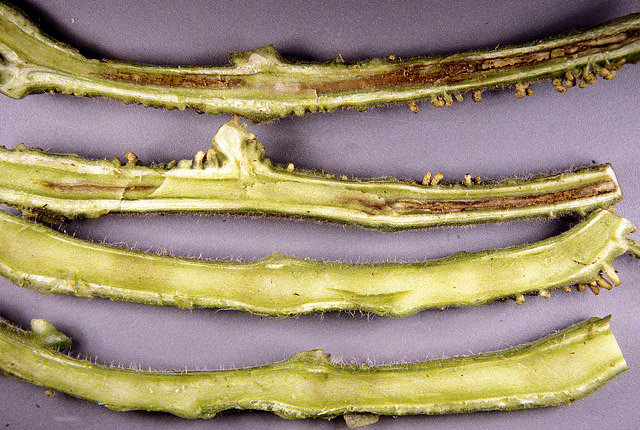
Pith necrosis | Geranium
DISEASE: Pith necrosis
HOST: Geranium (Pelargonium sp.)
PATHOGEN: Pseudomonas corrugata
SOURCE: A. Magyarosy, D. Thomas
DISEASE: Pith necrosis
HOST: Geranium
Discolored stem caused by systemic infection of the pathogen.
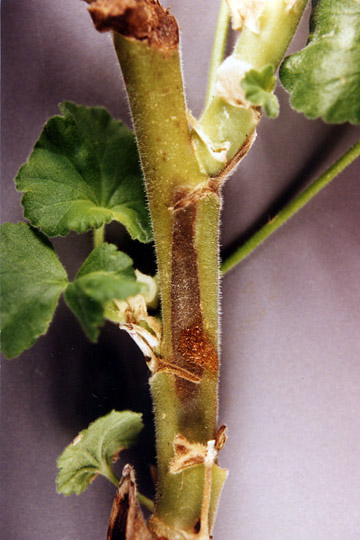
Pith necrosis | Geranium
DISEASE: Pith necrosis
HOST: Geranium (Pelargonium sp.)
PATHOGEN: Pseudomonas corrugata
SOURCE: A. Magyarosy, D. Thomas
DISEASE: Pith necrosis
HOST: Tomato
Cracked, dry, hollow stems with internal necrosis.
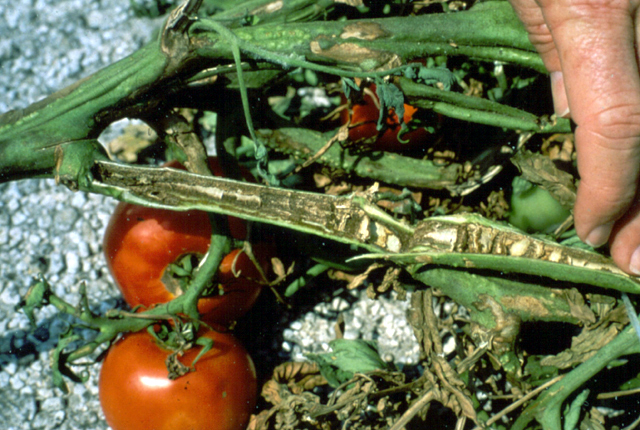
Pith necrosis | Tomato
DISEASE: Pith necrosis
HOST: Tomato (Lycopersicon esculentum)
PATHOGEN: Pseudomonas corrugata
SOURCE: A. Alvarez
DISEASE: Pith necrosis
HOST: Tomato
External necrotic stem tissues. Initial symptoms include chlorosis of young leaves. Wilting may occur when disease is severe.
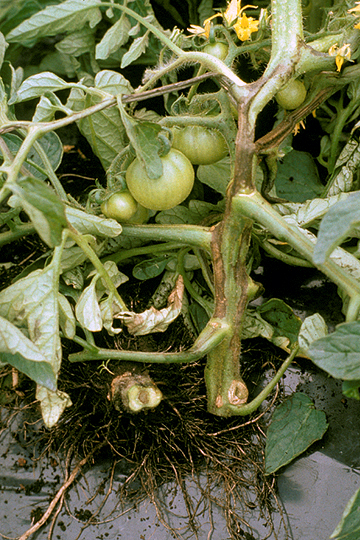
Pith necrosis | Tomato
DISEASE: Pith necrosis
HOST: Tomato (Lycopersicon esculentum)
PATHOGEN: Pseudomonas corrugata
SOURCE: K. Natsuaki, M. Goto


